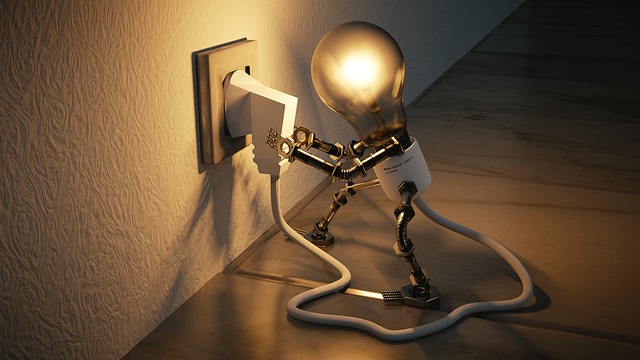It’s no secret that our daily lives are highly reliant on energy.
In particular, we’re increasingly becoming attached to technologies, appliances, and toys, and they all require an energy source to keep running.
All too often, electricity is the primary power source in our households.
But what happens in case of a power blackout?
Does this mean that life comes to an abrupt end?
The best option is to prepare so such life events.
Investing in a generator is a good way to keep your household powered and your appliances up and running.
A generator is more than a power source, but also a way to protect your investment. When the weather takes a turn for the worse and electricity goes out, a reliable backup source will keep your home or business running.
Generators come in various orientations.
Primarily, however, generators are classified according to the fuel type.
Common types of generators include diesel, natural gas, gasoline, and propane generators.
And today, we shall look at the different propane generators and how they work.
But before then, let’s see what a propane generator is.
What is a Propane Generator
A propane generator is a mechanical device that is used for the sole purpose of generating electricity.
As its name suggests, propane generators are powered by propane.
You can get propane delivery, installation, and service from companies like nelsonpropane.com.
Similar to how a vehicle uses fuel to run, a propane generator uses propane to run.
Propane generators, like many other forms of power backups, can be used for supplying electricity to a variety of locations for various applications.
Propane generators can be used to supply backup power to households, businesses, hospitals, commercial spaces, or even RVs.
Propane generators can also be used in locations where conventional grid power is yet to be established, including the remote mining stations, or even new construction sites.
How Propane Generators Work
First, understand that the working principles behind all forms of generators are pretty common.
The working principles of a diesel generator are similar to those of a propane generator, and the only difference is the source of fuel. While those running a propane generator will reach out to companies like Kelly Propane to purchase fuel, those with diesel generators will have to look for diesel suppliers.
Having said that, generators to not produce electricity; instead they facilitate the process.
Generators help to convert mechanical/chemical to electrical energy.
So, how does mechanical energy happen in the first place?
Propane is a highly flammable hydrocarbon gas. It’s important to use an Aerosol Storage Cage solution to store them safely and securely. Storemasta cabinets are designed with perforated walls that allow sufficient and natural ventilation. Access into the cage is controlled by pad-lockable doors and safety signage alerts workers of the chemicals held within the cage.
When a generator is in use, it burns the gas, which creates heat and energy. It’s this heat that that is converted from motorized power to electrical energy.
Once electrical energy is established, it’s channeled through copper wires to generate electrical current, which can then be used for powering appliances.
The entire conversion process is based on Michael Faraday’s principle of electromagnetic induction.
According to this principle, when a conductor is moving through a magnetic field, electric charges are created and can be directed to create an electric current.
However, the conversion is not a simple as it sounds, but we shall have a look at how it does happen when we highlight some of the critical components of the generator later.
3 Essential Components of a Propane Generator
To understand more about how a propane generator works, it is prudent that we’ve a rudimentary understanding of the major components.
- The engine is responsible for supplying energy to the generator. The power of the engine determines the overall power and how much electricity a generator can provide
- An alternator is where mechanical energy is converted into electrical energy
- The propane fuel system is responsible for the energy source.
Reasons Why You Should Have a Propane Generator?
There are several reasons why you should want to have a propane generator.
Be Ready When Disaster Strikes
Unlike other types of fuel, the shelf life of propane is considered limitless, meaning it can be stored in cylinders without degrading.
As such, having a propane generator means that you’re always ready even when disaster strikes, and you can be confident that your generator will fire up.
Environmental Benefits
Though propane is still a fossil fuel, it’s considered “clean.”
This is because it generates low amounts of carbon monoxide, compared to other fuel sources.
Again, unlike diesel, there’re no environmental effects of spilling propane.
Lower Operating Costs
If you’re running a commercial business, running costs are a top concern.
Fortunately, propane is relatively inexpensive compared to gasoline or natural gas.
Secondly, propane is available throughout the country, and there’re plenty of dedicated gas stations, hardware stores, and propane suppliers.
Conclusion
In case of an emergency or power outage, a standby generator will serve as a reliable backup power source to ensure that your business or household has power running.